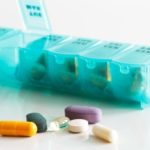Are Vitamin D Supplements Failing Us?

Growing up, the vitamin star of the 70’s was Vitamin C. Kids and adults alike drank tons of orange juice to make sure they got enough in their diets. Beverage companies hopped onto this nutritional wave, creating artificially bright-colored Hi-C® drinks marketed to parents who wanted their kids to be healthy—haha!
Today’s vitamin star is most definitely Vitamin D. Insufficiencies of this fat-soluble vitamin have been linked to diabetes, heart disease, cancer, dementia, depression, osteoporosis, chronic fatigue, etc. Given this non-exhaustive list, you can see why this vitamin has garnished so much attention as of late!
When you go for your annual checkup, or if you visit your physician’s office with one of the above health complaints/issues, your doctor will typically test your blood to see if your vitamin D levels are within in normal range. If they come up short, you will be placed on an oral supplement. Then after a time, your blood will be retested to see if your vitamin D levels have risen into the “normal” range. If so, then all’s well—or is it?
Recently, researchers have been curious to see if these supplement-achieved higher levels of circulating vitamin D have had the positive effect on the disease processes they assumed it would have. Over and over again, the stunning findings of separate studies has been NO.
Yikes! What gives?
Current studies are pointing to the GUT—that’s what gives. Researchers have now come to understand that the vitamin D which blood tests are calculating is the INACTIVE form of the vitamin. In order for this vitamin to be utilized by the body to protect against disease, it must be metabolized from the precursor (inactive) form into its ACTIVE (usable) form. And where does this transformation take place? In a healthy GUT, that’s where!
Here is what is currently understood: A diverse microbiome— a gut which sports a significant variety of bacteria—is associated with the more ACTIVE (usable) form of vitamin D and therefore, a reduction or reversal of the medical conditions listed above.
So, if you want to gain the health benefits of those vitamin D capsules you’ve been taking, you’ll have to tend to your gut’s “garden.” Get ahold of some probiotics (via fermented foods or supplements) and then feed those bacteria the diet they need to survive: prebiotic foodstuffs*.
*Refer to my MMHT from 11-18-19.